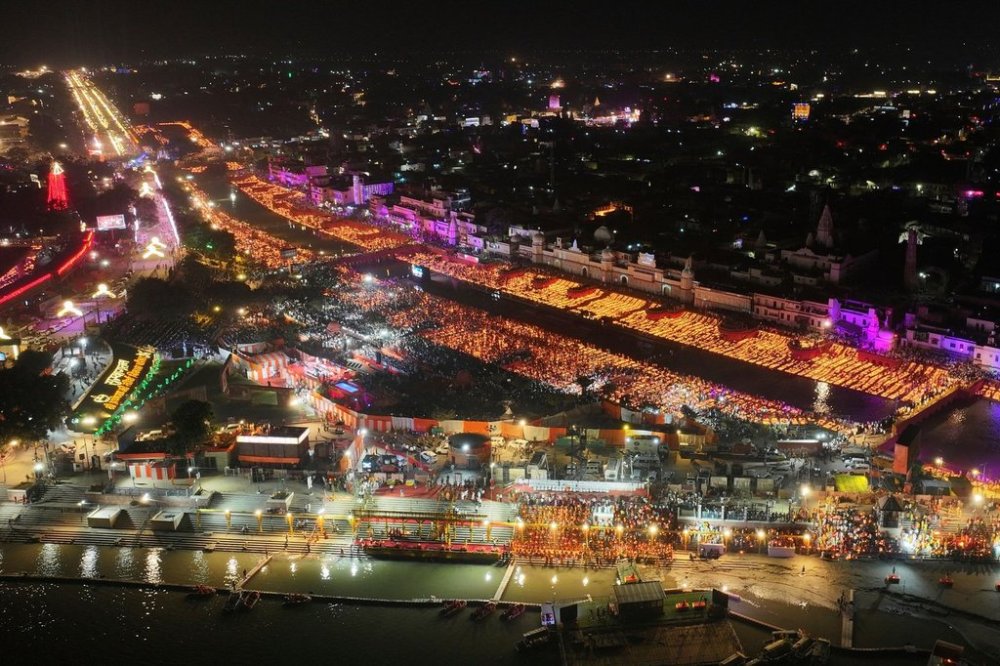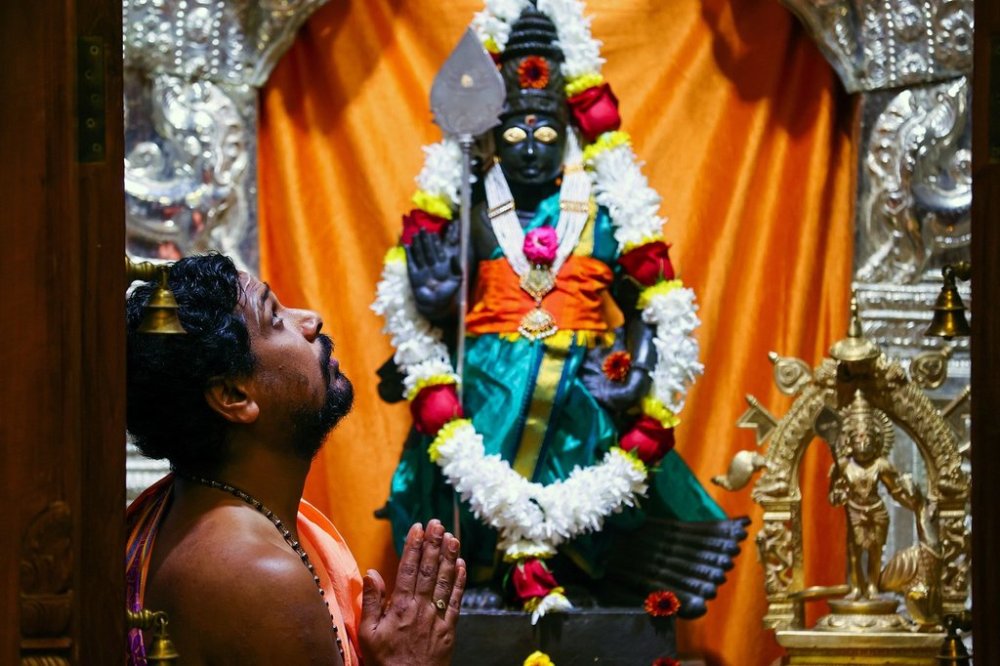California makes Diwali an official statewide holiday
Advertisement
Read this article for free:
or
Already have an account? Log in here »
To continue reading, please subscribe:
Monthly Digital Subscription
$0 for the first 4 weeks*
- Enjoy unlimited reading on winnipegfreepress.com
- Read the E-Edition, our digital replica newspaper
- Access News Break, our award-winning app
- Play interactive puzzles
*No charge for 4 weeks then price increases to the regular rate of $19.00 plus GST every four weeks. Offer available to new and qualified returning subscribers only. Cancel any time.
Monthly Digital Subscription
$4.75/week*
- Enjoy unlimited reading on winnipegfreepress.com
- Read the E-Edition, our digital replica newspaper
- Access News Break, our award-winning app
- Play interactive puzzles
*Billed as $19 plus GST every four weeks. Cancel any time.
To continue reading, please subscribe:
Add Free Press access to your Brandon Sun subscription for only an additional
$1 for the first 4 weeks*
*Your next subscription payment will increase by $1.00 and you will be charged $16.99 plus GST for four weeks. After four weeks, your payment will increase to $23.99 plus GST every four weeks.
Read unlimited articles for free today:
or
Already have an account? Log in here »
LOS ANGELES (AP) — California has become the third U.S. state to designate Diwali — the Hindu “Festival of Lights” — as an official statewide holiday.
Gov. Gavin Newsom signed a bill into law Tuesday to go into effect on Jan. 1. It would authorize public schools and community colleges to close on Diwali. State employees could elect to take the day off and public school students will get an excused absence to celebrate the holiday. The new law recognizes that Diwali is also celebrated by Sikhs, Jains and Buddhists.
Pennsylvania was the first U.S. state to make Diwali a statewide holiday in 2024, followed by Connecticut earlier this year.

Assemblymember Ash Kalra, a Democrat from San Jose who coauthored the bill with Darshana Patel, an assemblymember from San Diego, said he grew up celebrating the festival with family members, but it was an experience that was isolated from the rest of his life.
“To have South Asian children be able to proudly celebrate and share it with others is a significant moment,” he said.
San Jose, a city in California’s Silicon Valley, has a sizable Indian American population. According to a 2025 Pew survey, 960,000 out of the nation’s Indian population of 4.9 million — or 20% — live in California. Hindu American organizations, including the Hindu American Foundation and the Coalition of Hindus in North America, advocated for the law.
“The provisions that allow students to take the day off without repercussion and state employees to take paid leave are important leaps toward making Diwali truly accessible to those who celebrate,” said Samir Kalra, managing director of the Hindu American Foundation.
Diwali, which falls on Oct. 20 this year, is derived from the word “Deepavali,” which means “a row of lights.” Celebrants light rows of lamps to symbolize the victory of light over darkness and knowledge over ignorance. The holiday is celebrated with festive gatherings, fireworks displays, feasts and prayer.
While Diwali is a major religious festival for Hindus, it is also observed by Sikhs, Jains and Buddhists. The origin story of Diwali varies depending on the region. All these stories, across faiths, have the same underlying themes of good triumphing over evil and light over darkness.
Sikhs, for example, celebrate Bandi Chhor Divas — a day that overlaps with Diwali — to commemorate the release of Guru Hargobind, a revered figure in the faith, who had been imprisoned for 12 years by the Mughal emperor Jahangir.
Puneet Kaur Sandhu, Sacramento-based senior state policy manager for the Sikh Coalition, said her organization worked with Ash Kalra to make sure the bill’s language included celebrants from other religions whose holidays coincide with Diwali as well.

“It’s so meaningful that all of us in the community can take this day to celebrate,” she said.
Rohit Shendrikar, board chair for the South Asian Network in Southern California, said this law not only recognizes the South Asian community in California, but also the impact its members have had on the state.
“I think about my parents’ immigrant experience when they moved here in the 1960s,” he said. “I celebrate Diwali together at home with my parents and my children, who will now have the opportunity to share their traditions and customs with friends. It helps build a bond between Californians.”
___
Associated Press religion coverage receives support through the AP’s collaboration with The Conversation US, with funding from Lilly Endowment Inc. The AP is solely responsible for this content.
The Free Press acknowledges the financial support it receives from members of the city’s faith community, which makes our coverage of religion possible.


